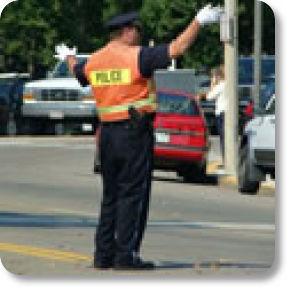
For the past three years, students at Assumption High School have held a five-kilometer run/walk to build neighborhood spirit and raise money for a good cause.
But the school canceled this year's event after learning it would have to pay $1,000 for traffic control by the Louisville Metro Police Department, which says it can no longer provide the service free.
"It's cost-prohibitive," said Katie Caswell, an English teacher at the school who plans the race. Last year the event drew 200 people and raised about $2,400 for the Nativity Academy at St. Boniface. "It was going to take such a bite out of what we'd be able to raise," she said of the additional costs.
The Assumption group isn't the only one calling it quits because of a new bill for traffic control.
The No Boundaries race sponsored by Fleet Feet and scheduled for Nov. 1 was canceled. Three races planned by Kentuckiana HealthFitness magazine have been scratched, along with the Hog Run, sponsored by the Cherokee Road Runners, in August.
Police and city officials say it's unfortunate that some races have suffered, but it simply was no longer feasible to provide free traffic control, because of heavy demand and a limited number of officers and the costs of paying overtime.
"We have to be good stewards of taxpayer money," said Lt. Col. Troy Riggs, an assistant police chief. "Cities around this nation have been charging for years."
In 2007, Louisville police provided officers to 109 special events, including 61 runs and charity walks. Those special events included parades, community festivals and Derby events.
Police estimate staffing those events cost about $2 million in officer pay, gas and wear and tear on equipment. It cost about $500,000 just to staff the runs and walks, according to departmental records.
The new fees, which went into effect March 1, include the cost of overtime pay for officers, but does not include gas or time spent in planning the coverage. And there is no charge assessed for any officer who works during his or her regular shift, Riggs said.Derby Festival events, including the miniMarathon and Marathon, and the Triple Crown of Running races were exempted from the fees because of the large crowds they attract.
Kerri Richardson, a spokeswoman for Mayor Jerry Abramson, said the number of people that come to those races provides an economic boost to the city.
But, recognizing that the fees are a problem for some race coordinators, Riggs said the department has formed a committee to see if there is a different way to assess them next year.
"We're trying to find the fairest way of assessing the fees," Riggs said.
Camille Estes, owner of Fleet Feet and race director for about 10 charity races a year, said she's concerned about the fees' impact. Most of her races this year weren't affected because she obtained permits for the events prior to March 1.
But she canceled the No Boundaries race, which was a late addition to her race schedule, because she didn't think it was worth the $1,200 it would cost for traffic control.
Estes said she's frustrated by the change in police department policy because it will hurt the charities the events benefit.
"It's not me that's taking the hit, but it's the charities," she said.
Police have been working with race directors to try to plot courses that would require fewer officers and make services more affordable, Riggs said.
For example, organizers for the Louisville Marathon, held last month, had originally plotted a course that would have cost about $20,000 in fees, because it required 266 officers -- for an event with about 350 runners.
Marathon race director Jim Ball said police asked him to change the route so they would not need so many officers, which he did.
Other smaller charities say they'll simply have to absorb the extra costs.
Kevin Alessandro, senior communications director for the March of Dimes, said he expects a bite to be taken out of the money his group's April walk can raise. Because the exact route hasn't been calculated, he does not have a total on how much traffic control will cost.
While the March of Dimes walk draws thousands of walkers and raises about $450,000, Alessandro said any additional cost takes away from the money raised to help prevent premature birth, birth defects and infant mortality.
"One-third of our state income comes from this event," Alessandro said. "The smaller events are definitely going to suffer more."







